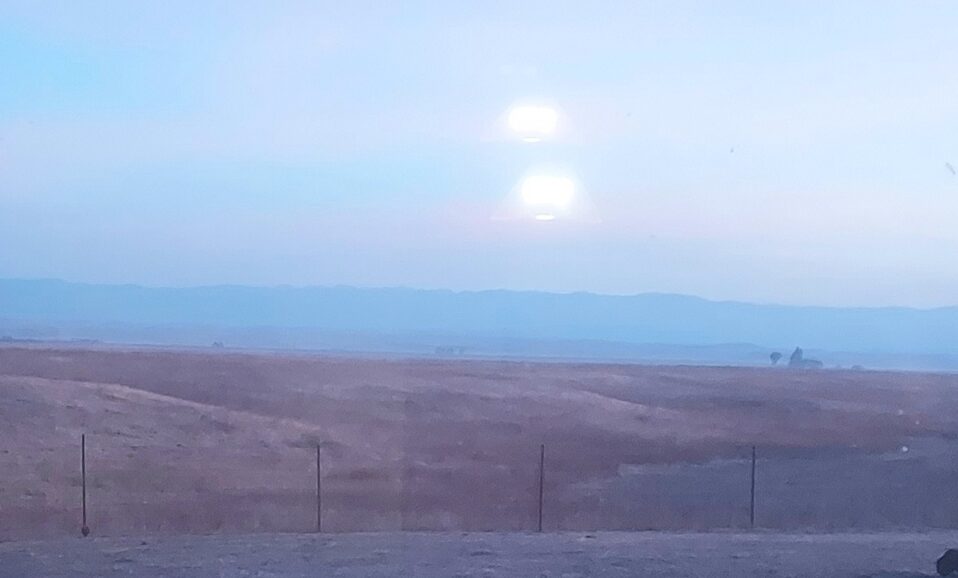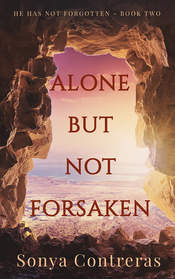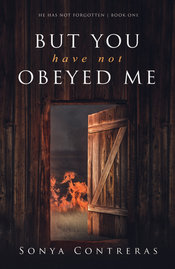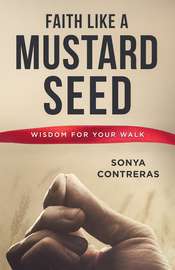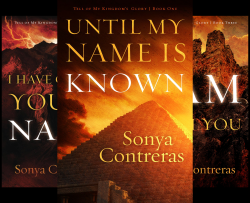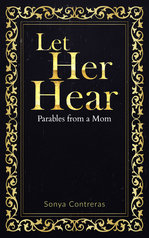- Home
- Index
-
My Books
- Book List
- Writing/Reading Articles Listing
-
My Short Stories
- What God Lost
- What God Lost — Part 2
- When Hope Was Lost
- A Battle in the Heavens
- To Live Forever
- Finding Peace
- Empty Hands
- From Fire and Thunder to Love and Submission
- The Coming One
- Forgiveness Made Possible
- The Innkeeper's Wife
- Do You Have The Right Words?
- The Lamb of God As Told by a Scribe
- What Love Is This?
- When Heaven Came Down
- Family
- Faith

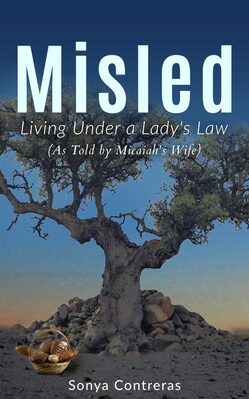
The terraces on the hillside that once held the city’s crops, now held dry, wasted, emptiness. Not a green plant could be seen. The wind tossed up brown dirt that made my eyes ache. Dust rose from my feet to coat my cloak, my skin, even my throat, making me wish for a drink I couldn’t have.
Even the fields where shepherds once watched their flocks were vacant. There was nothing left for sheep to eat. Even the goats, able to eat anything, could find nothing. So they too were gone.
The dry land sucked life out of everything.
Without water, the city’s people were slowly starving.
With the drought and resulting food shortage, I hid the bread under my cloak from men who would steal to feed their families. My husband Micaiah must eat. I must get close to the caves where he was hiding. He would share these meager loaves with the other ninety-nine prophets Obadiah had hidden in the caves.
It had been three years since the rains had come.
How much longer would the Lord keep back the rain?
I wiped my face with my cloak. Even before the darkness left the sky, the air was hot and dry. I glanced back at the city, feeling the eyes of the queen upon me. Could her evil follow me? I shrank back involuntarily.
Now well beyond the city, I brought the loaves of bread out from under my cloak and placed them in my empty basket, covering them with a linen cloth. I wiped my palm down my cloak: the rough texture of the bread’s grain mixed with the dust of the wilderness.
When I last saw my husband, he reminded me, “The Lord is in control.”
Perhaps the Lord is in control, but still my husband hides, or the queen would have his head.
What did our great King Solomon say? Something about, “Hope deferred makes the heart sick.” Well, my heart is weary of waiting for good to come, almost to the point of sickness.
How did our people get into this mess?
Our previous king had built altars on the high places, and my husband said, “When they turn away from the Lord, the Lord will turn away from them.”
That king made an alliance with the land of Phoenicia. And strengthened it by having his son marry the Phoenician princess.
In time, the princess became queen.
But she was not satisfied with being the queen. She wished to be the final authority in the land.
The queen did not request of the king; she ruled the king.
The first thing she did was demand more altars to be made in the high places. She feasted with the priests, telling them how to worship. She spoke to the gods. And she spoke for them.
The people gossiped about how spiritual she was. How the gods would be satisfied by her sacrifices. How meaningful the worship had become since the queen had taken such an interest in it.
I cringed. God was pleased when sacrifices were done in His temple by men who had been anointed and instructed according to the Law.
How could God be pleased, when He wasn’t even obeyed?
Each day my husband came home troubled. Until, one day, he didn’t return at all.
I worried, until a lad bumped me in the market and whispered, “The prophet Obadiah has taken your husband to the caves.”
The caves were scattered across the hillsides outside the city of Samaria. Away the queen’s ever-reaching hand.
Just in time, for soldiers stormed the city’s streets, bringing any prophet of the Most High before the queen to be killed.
That had been many weeks ago. I shook my head. How could our people carry on?
I had reached the tree where I’d leave the bread for the next messenger to take to the caves.
I wished I could speak to Micaiah. I needed his reassurance. Was he well?
I glanced around for anyone. In this wilderness, no one should venture far without water. I didn’t know how the prophets could survive without the rationed water permitted in the city. The Lord must have provided a spring for them somewhere.
I left the basket and picked up a similar basket left under the tree, checking it for any token from my husband. When he first hid, he’d put a desert flower at the bottom. I carried that bloom in my tunic’s pocket until it crumbled. It reassured me he was well, and God was still there for us and our nation.
Now there was nothing living to be found. I looked anyway. A dead twig lay under the linen napkin. I lifted it out and held it to my breast. Yes, my husband knew how to give comfort, even while he hid for his life.
I made my way back to the city a different way, being careful I wasn’t followed. Before I got back to the city, the sun had risen to scorch the land again. I glanced at the high hills surrounding Samaria.
A group had gathered at the top of the mountain. More sacrifices for rain, no doubt.
I paused to study the group. The queen’s priests were present, and many watchers. Even the king was there.
A voice carried from the hilltop. “How long will you hesitate between two opinions? If the Lord is God, follow Him; but if Baal, follow him.”
That had to be one of the Most High’s prophets!
I hurried up the mountain to watch from the edge of the crowd.
The most hated prophet by the queen, Elijah had come out of hiding. He stood before the king.
I looked for the queen.
She was not there.
I breathed better and settled against a boulder to listen.
Elijah spoke, “I alone am left a prophet of the Lord.”
I gasped. I could feel my heart racing. Did he know something that I didn’t? Had they found my husband? I clutched the twig in my hand until it snapped. I glanced down the path toward the caves. I could see a figure under the tree where I had left the bread. He was taking the bread to those prophets who hid. My husband still lived. The hundred prophets hidden by Obadiah were still safe in the cliffs. My breathing returned to normal, and I focused on what Elijah was saying.
“Choose an ox for your priests. Cut it up. Place it on the altar, but put no fire under it. I’ll do the same. Then call on your god, and I’ll call on the Lord. The God who answers by fire, He is God.”
The king hesitated. He looked toward the city, as if he must ask the queen. Did he make any of the decisions for our people?
While he debated, the people answered, “That is good.”
The priests of Baal chose their ox and prepared their altar.
The sun rose as they called to their god.
They danced. They shouted. They called for fire.
The sun stood overhead.
I wiped my head and pulled my hood farther over my face to protect me from the sun. When I licked my lips, I could taste the salt and dust of the land. My stomach growled. I thought of the bread my husband would eat and hoped it was enough.
We waited.
Elijah scoffed at their dancing. “Call louder. Maybe your god is busy or asleep.”
They threw off their cloaks and drew their knives, slicing themselves. Sweat poured from their exposed heads, and blood streamed from their arms and legs. They cried for any answer from their gods. How desperate were they for a god who could no more hear than a stone could?
It was pitiful for grown men to weep and beg. I couldn’t watch, but neither could I leave.
As the day grew hotter, their movements became labored. They had lost their lifeblood. They could barely move, but still they would not acknowledge defeat.
I glanced at Elijah. He had waited, sitting on a boulder, when they first began. Now he stood, almost reluctantly. He gathered twelve stones, one for each son of Jacob, the original patriarchs of the twelve tribes of their nation. He stacked them up to form an altar.
Before the watching crowd, he removed his cloak and dug a trench around the altar large enough to hold two measures of seed. He arranged the wood and cut the ox.
Then he spoke, “Bring four pitchers of water.”
I gasped. Four pitchers would have been my ration for a week in this drought.
The king reluctantly gestured for his servants to bring the water.
The rest of the crowd watched the four servants bring the vessels up the hill. The water reflected the sunlight’s rays.
I licked my lips subconsciously. That water could have wet my lips.
When they reached the area of the altar, Elijah said, “Pour the water over the altar.”
I held my hand over my mouth, rubbing my dry, peeling lips. All water was sacred. Even a drop was reused to conserve the city’s strength.
The sound of the water hitting the dry, hard-packed earth made me cringe. Drops flew up at its first impact, then settled to sink into the parched ground, as if it were a vessel without a bottom.
Elijah commanded, “Do it again.”
Then again, a third time.
After the third time, the trench held the water and was filled. The water sparkled in the sunlight. I could almost see the sun sucking up the water.
I had to restrain myself from falling on my knees to drink the water.
Elijah raised his arms toward heaven, “O Lord, God of Abraham, Isaac, and Israel, today let it be known that I am Your servant. I have done these things at Your Word, so this people will know You are God, and You have turned their hearts back again.”
The heat of the sun and the weariness of waiting had made me sleepy. His prayer was so short, I almost didn’t think it had started.
But suddenly, fire fell from heaven.
The light burned my eyes. I turned my head from its brightness, yet could hear the flames. Could they lick up the water? When I looked again, the flames had consumed the ox, wood, stones, and water. Nothing was left, not even ashes.
I blinked and stared again. Would it continue to lick up the dirt at my feet? Had I only imagined the altar? I breathed deeply and broke the twig again in my hand.
Elijah stepped forward and pointed to the people. “Seize the prophets of Baal. Let none escape.”
I didn’t stay to watch, but I left with my heart singing. Elijah still lived and had made a stand for the Lord. Without the priests of Baal, would the people turn their hearts back to God?
Maybe my husband could come home soon.
It rained that night. I couldn’t help but wonder if Elijah’s presence had anything to do with it. I stood in the street and raised my face to feel the rain. Its soft droplets washed away the dust and weariness of the drought. It was a welcome sight, a sign that hope was coming.
I stepped over puddles and through the rain-soaked path to the tree the next morning. I didn’t’ have much to give to my husband. This was the last of my flour. I had made the cakes, singing that the rains had come. But there would still be seeding, growing and harvest before more grains would come. Still, the seed of hope had begun. God’s people were turning back to God. My prayer, that my husband would be able to come home soon, was singing in my heart.
When I reached the tree to exchange baskets and leave the bread, I looked out of habit to see if my husband had sent a message. My heart soared. He had placed a vessel of water in the basket. Water, indeed. We could still hope.
But that very day I heard the soldiers marching through the streets of our city. They barged into my house. I crouched against the wall, watching them ruin my home. “Whom do you seek?”
“The queen demands the head of Elijah.”
The queen again.
The king allowed the false priests to be killed by Elijah’s command, and now all must pay.
I prayed Elijah had fled. My hope that the people were turning to God was crushed.
No man could stand against that woman.
When the king of Aram besieged our city, I couldn’t leave to give my husband food. I worried whether he’d been found with so many soldiers wandering the wilderness outside the city’s walls.
The entire city waited, as if without breath, to see what would happen.
One night, when a hand touched my shoulder, I almost screamed.
“Shhh. It’s me,” a voice whispered in my ear.
I breathed deeply, willing my heart to stop its violent beating.
My husband had returned.
He held me tightly for a long time. His beard tickled my neck and his hair brushed against my face. “I’ve a message for the king.”
My strength left me. I wished I could tell him not to tell his message, stay here, be safe. But I knew I couldn’t tell him. He must do whatever God told him to do. I dreaded the message. How could it be anything but bad? “What must you tell him?”
“We’ll win against the king of Aram. The Lord will show the king that He is the Lord.”
I nodded. That would please the king. But I could not remove the fear in my heart, nor think of the dangers he’d face by being in the palace with the queen.
Before he left under the cover of darkness, he said, “I’ll return.”
The king gathered his young men and marched at noon. He found the king of Aram with the thirty-two other kings drunk. Our king sent them running.
Other battles followed. The king left on many battles, but the queen remained at home, worshipping. And my husband stayed in hiding.
After one battle, the army returned. Their victory song resounded through the streets. But when the king arrived in his chariot, he did not look happy.
As I watched out my window, I was startled by someone touching my shoulder. I gasped.
My husband leaned on me, clutching his side where he held a blood-soaked garment.
“Micaiah, what happened? Sit down.” I gave him a drink and helped him lie down to dress his wound.
Micaiah told his story. “The king won the battle. He captured the king of Aram. The king begged for his life, promising land that should have been our kings anyway.”
I inspected his wound. It wasn’t deep, but it had bled much.
“Why were you fighting?” I interjected.
My husband ignored my question. “Our king allowed him to live.”
“After all these battles?” How could anyone, let alone a king, be so ignorant!
Micaiah gasped as I poured wine over the wound. He caught his breath before continuing. “The Lord wasn’t pleased. I asked another prophet to wound me.”
I glared at him.
“It’s what the Lord told me. When he didn’t stab me, I had to tell him ‘because you haven’t listened to the Lord’s voice, as soon as you leave here, a lion will kill you.’” Micaiah shook his head. “We are held to a different standard than the king, I guess.” The wound didn’t bother him as much as the prophet who didn’t listen to the Lord.
He winced as I applied pressure to his wound. I wasn’t too tender in my administrations. Why would the Lord want His own prophet stabbed?
Sweat had gathered on his forehead.
“I asked another man to strike me. He wounded me. I then waited for the king.”
I clenched my teeth and spit out the words, still angry with God and him. “Did he recognize you?”
He shook his head. “I disguised myself with a bandage over my head. I told him. ‘An officer brought a captive to me, saying, “Guard this man. If he’s missing, your life shall be for his life.” ‘Oh King, while I was protecting another, the man escaped.” I looked with dejection at the king.”
I smiled. Micaiah was a good actor. God used object lessons for correcting kings. Didn’t He do the same with King David, when he had taken Bathsheba for his wife after killing her husband? “How did he answer?”
Micaiah shrugged. “He responded as I knew he would. ‘You’ve judged yourself.’ Then I removed my disguise.
“The king recognized me. His whole demeanor changed. I could tell by his look of resignation that he could guess what I would tell him. ‘Because you let the king go, whom the Lord wanted destroyed, your life shall be given for his life and your people for his people.’”
I nodded. “I saw the king return. His soldiers sang of victory, but the king was not happy.” I wiped his forehead with a damp cloth. “Drink this before you rest.” I held a vessel to his lips. He drank the wine before he fell asleep.
I wondered what the queen would do next.
I didn’t have long to wait.
The king’s sullen, vexed mood kept the queen from pursuing my husband. I was relieved, for it gave time for my husband to heal.
I was returning from market one sultry afternoon when I saw the king enter Naboth’s courtyard. His palace overlooked Naboth’s vineyard. From his window, he could probably see what I could smell: the fragrant blooms of Naboth’s fruit trees. The overhanging boughs of olive and date trees leaned over the walls.
I paused. Why would the king visit a man like Naboth? I stood outside the garden wall, straining to hear.
The king did not linger over greetings. “Give me your vineyard. I want it for a vegetable garden.”
Naboth answered the king without hesitation, “The Lord forbids me to give you the inheritance of my fathers.”
“I’ll give you a better vineyard.”
By the silence, I guessed the king had been declined. His voice rose in anger, “Name your price. I’ll give whatever you ask.”
Naboth’s voice broke, sounding apologetic, “O King, it is my inheritance.”
I stepped into the shadows of a tree by the wall as the king stormed out of Naboth’s courtyard.
I didn’t envy Naboth, but he had done what was right. His land was his inheritance, given by God Himself. The king had no right to ask for it.
It wasn’t long after that Naboth was stoned to death.
Micaiah shook his head. “The queen invited Naboth to eat at her table. Two worthless men accused Naboth of cursing God and the king.”
“He did no such thing.” I related what I had heard over Naboth’s wall.
My husband paced. “I fear for our people, when our king allows the queen to live by her own laws and execute injustice on our people.”
My husband had gone to speak with some of the other prophets of God.
I waited, trying to stay busy, worrying about what he would find. Whatever news he brought would bring ill for everyone. I settled my thoughts as I punched my bread. The bread would be light and airy with all this kneading.
Micaiah hadn’t been gone long, before he burst back into the house, and paced before me. “Elijah confronted the king.”
I paused from patting the bread. “What happened?”
“The king listened to him and repented. The Lord showed mercy. He won’t remove the kingdom from Ahab, but from his sons, when they succeed him.”
I snorted. “Will the queen allow her sons to rule?”
My husband shook his head. “Elijah declared a special judgment on the queen.”
I looked up from forming the flatbread, a dread seeping over my body, “What?”
“The Lord promised the dogs and birds would eat her.”
I couldn’t even look at my flatbread. “How awful.”
My husband shrugged. “She has made Israel detestable before the Lord. She rules the king. She leads the people away from God. Men fear her more than any king.”
Life was quiet for a time, I could almost think we lived a normal life. Until one day, a messenger came for my husband. My heart beat in my throat. “What does the king want?”
The messenger said, “He seeks counsel for war.”
As I waited for my husband’s return, I couldn’t concentrate. My husband would speak the truth and anger the king. He always did. Would he anger the king too much this time?
When I heard a knock at my door, instead of my husband’s return, a foreboding seeped into my toes and crawled up my legs. I could hardly answer the door.
The same messenger who had demanded my husband’s presence before the king now stood again at my doorstep.
It was clear he didn’t want to be there. He shifted from one foot to another.
I clutched my cloak around me as if that would prepare me for the words he would say. I swallowed trying to get my voice. “What did Micaiah tell him?”
He shrugged. “That the king would win. The king didn’t believe him. He yelled at him. ‘How many times must I tell you to speak nothing but the truth?’”
“Why didn’t the king believe him?”
The messenger smiled. “Because the false prophets had told the king he would win.”
“Then what did he say?”
The messenger’s shoulders slumped. “He said we would be defeated. Our people would be scattered to the mountains. The king wouldn’t return from battle.”
I gasped. “What did the king do?”
“He turned to the king of Judah who sat beside him and said, ‘Didn’t I tell you he’d tell me no good thing?’”
The messenger paused, “Micaiah than raised his voice for all to hear. ‘Hear the word of the Lord. The Lord sat on His throne, and all the host of heaven stood by Him. I heard the Lord ask, “Who will entice the king into battle, so that he will fall by the sword?” A discussion took place. Finally, the Lord put a deceiving spirit into the king’s prophets to convince him to go to battle. But the Lord proclaimed disaster against the king.’
“Zedekiah, one of the king’s false prophets, struck Micaiah. ‘How did the Lord pass from me to tell you these words?’
“Micaiah faced Zedekiah, ‘When you have to run and hide in an inner room, you will remember my words are true.’
“The king stood. ‘Put Micaiah in prison. Feed him bread and water until I return safely.’
“Micaiah responded. ‘If you return safely, then the Lord hasn’t spoken by me.’
I dropped my head in my hands and wept. Micaiah had only spoken God’s words. I wouldn’t want him to speak anything but the truth…but why must the truth require such consequences? My husband would stay in the dungeon.
I didn’t notice when the messenger left. I didn’t even remember closing the door or falling on my bed, but when I woke, my cheeks and hair were wet from my tears. The sheepskin was damp. I must have cried myself into an exhausted sleep.
In my heart, I knew I would never see my husband again.
The streets filled with soldiers as they prepared for battle. I heard the constant jingle of their swords brushing against their armor as they walked. The harnessed horses, as they pulled the chariots, portrayed strength and power under strong control. I watched the king’s chariot roll out of the city in all its splendor and glory. I followed them on the road away from the city until they were nothing more than a cloud of dust. Silence enveloped me.
I watched with pity for I knew they would not return. Those soldiers, so trusting of their king, were being led to their own death.
The king, so arrogant of his power, would be slain.
And what would our people do?
Would our queen even mourn? I didn’t think so.
But my Micaiah would remain in the dungeon.
When the soldiers did return, I heard no victory song. I still heard the brush of their swords against their armor, but they trudged through the streets, heads bowed, tunics torn in mourning.
The king had disguised himself as a common charioteer to prevent the promised disaster. He thought he could out-smart God.
A stray arrow killed him.
And Micaiah remained in the dungeon.
The people mourned King Ahab. Then his son Ahaziah took his place.
But the queen still ruled the worship and controlled which prophets the king listened to. And the truth was far from the people of God.
When Ahab died, I hoped his son, Ahaziah the new king, would release my husband. Did Micaiah still live? If only I could know. The uncertainty was worse than knowing. I asked God to ease my aching heart, to let me know whether he was still alive.
He didn’t.
Time passed. Slowly. My life seemed to be on hold as I waited for Micaiah to be released from prison. Had the king forgotten my husband existed? I had not. I prayed daily for his release. I waited. For what, I couldn’t tell. The king wouldn’t change his father’s decree, not with his mother to remind him of what she wanted.
Before, when Micaiah hid in the caves, at least I received word from him. I could give him bread to eat. But with his imprisonment, I didn’t even know if he lived. And I could do nothing for him.
Not that I made bread for myself, either. I forgot to eat. How do you give your only love into the Hands of God and leave him there? I struggled to do that every day.
I had mourned on the day of his capture, almost as if he had died then. The weight of his torture, his suffering weighed heavy on my heart, as if I was feeling it with him.
Sometimes I wished he had kept the Word of the Lord from the king. Wouldn’t he be safe now? But I’d shake my head and know that he would have been miserable. And so would I. He had to proclaim the truth. He had to tell the Lord’s Words, even to a king who would not listen.
Then, one day, it was as if the burden was lifted. I felt a release. The heavy weight I had carried for his suffering was over. I even hummed as I worked.
When the messenger at the door knocked, I didn’t have to wonder why. I opened the door.
He shifted on his feet, but couldn’t look me in the eye.
I touched his arm. “He’s dead.”
He looked up startled, that I knew, and nodded.
I squeezed his arm. “Thank you for coming.”
He fled, now that his message had been delivered.
I shut the door. My tears of sorrow had already been shed, years ago, when Micaiah had been put in the dungeon. Now I just felt empty. I had waited for news. I had longed for it. But when it came, I had already known.
And with the news, I felt release. Micaiah would suffer no more. He was with the God he had proclaimed. Now his words would be heard. They echoed what God said. And there would be rejoicing.
Micaiah had lived his life proclaiming God’s truth. Now he would stand beside his God of truth … and worship.
The tears that escaped my eyes now were tears of joy for him. He was free. He was with his God.
I sighed deeply, then laughed, as I picked at a loaf of bread. Micaiah would never need another loaf. I placed a piece in my mouth and chewed. My days of making his bread were over and so were my days of wondering if he was still alive.
Those feelings of relief did not last. Micaiah could rejoice, but what about me? I had lived to serve him. Even in prison, I had prayed for his needs. Now what could I do? My entire purpose for living was gone. I blinked back the tears that pooled. Micaiah wouldn’t want me mourning his loss — It wasn’t his loss. It was mine. — Nor would God want me living in self-pity.
I mourned, allowing the tears to soothe my troubled heart. I still suffered the consequences of Micaiah speaking the truth. Knowing the truth made me mourn for our people who refused to acknowledge the truth. And I cried for myself, because I was left behind.
My memory blurred over which king was now ruler. What did it really matter, when the queen ruled any king? First Ahaziah, son of Ahab.
But the Lord took Ahaziah’s life, as he trusted in the gods of Baal.
Then Jehoram replaced him. With each succession, the promised curses for our people’s sin followed us.
But the queen still lived.
Elijah had passed his mantle to Elisha and was taken by the Lord. He no longer had to hide, but was rewarded by God for his faithful service.
The kings did not follow the Word of the Lord, nor seek Him, but listened to the queen and the prophets that she chose.
Our people suffered much.
With their suffering, I knew why I had been left behind: to help those who needed, not only bread, but to be reminded of God’s truth, and of hope. I came to realize that Micaiah’s death hadn’t been for naught. He died for his God. And maybe now I should live for Him.
I swallowed. I didn’t proclaim the truth like Micaiah. The lump in my throat made it hard to swallow. But I could share a loaf of bread and explain that life beyond this queen’s reign was possible. I could share God’s truth, not to the king, who didn’t even listen to my husband, but to the people who needed hope.
My life became a ministry, reminding the people of blessing found in obedience to God. Most did not listen, just like the king with Micaiah, but some sought with their heart a better way — God’s way. They listened and found hope.
So much more happened. The queen kept leading our country into more and more sin. God’s blessing had stopped flowing on His people. How long would God allow our sin to continue?
Much of what happened I tried to forget. But two events stand in my mind clearly. One showed the depth of the depravity to which we had fallen. The country of Aram lay siege against us. Our people had nothing to eat. I couldn’t even make bread. I had nothing to eat, but I still possessed the hope of God’s words.
I heard one woman cry out her window as the king passed by, “Help, my lord, O King!”
He looked up. “If the Lord does not help you, how can I?”
The woman explained, “This woman told me, ‘Give your son that we may eat him today. And we will eat my son tomorrow.’ So we ate my son. The following day, I demanded, ‘Give your son.’ But she hid him. Punish this woman, O King.”
The king tore his clothes. He lowered his head.
I heard him mutter, “May God do so to me and more also if the head of Elisha remains on him today.”
It was the king’s idolatrous worship that had brought this suffering, but he was blaming the Lord’s prophets, instead of looking to his own actions!
I shook my head at his faulty blame and prayed Elisha was hidden well.
But the Lord had other plans. Elisha was found. He prophesied of abundant food on the morrow.
The Lord showed mercy, in spite of our leaders’ hatred of Him. Lepers from our city went to the campsite of our enemy and found it abandoned. They told the sentries at the city gate.
Our people had food again.
But the queen did not repent.
I cringed and waited. My time was not God’s. I knew His Word would come to pass sometime and through His appointed people. I must wait. I heard afterwards how Elisha had sent his servant to Jehu, commander of the army. “The Lord has anointed you king over Israel. Strike the house of Ahab, that I may avenge the blood of My servants the prophets at the hand of Jezebel. Let no man from the house of Ahab live. Dogs shall eat Jezebel, and none shall bury her.” After delivering his message, the servant anointed Jehu, then fled into hiding.
Soon more deaths would come.
King Jehoram warred against Aram.
If only Ahab had killed the king of Aram when he could have. But the consequences of disobedience never disappear without payment.
Wounded in battle, King Jehoram retreated to Jezreel to be healed. The king of Judah went to visit him there.
One day, the king’s watchman was in the high tower and noticed a party of chariots approaching the city’s walls.
The king watched over the city’s wall. “Send a horseman to ask, ‘Do you come to us in peace?’”
The messenger was seen speaking with the lead charioteer, but instead of returning with news, he turned aside and waited in the distance.
The king sent another messenger.
He also didn’t return.
The watchman reported, “The man drives his chariot like a madman. It must be Jehu.”
King Jehoram summoned his chariot and met Jehu outside the walls. When he saw Jehu, he hesitated, reigning in his horses. “Are you for peace, Jehu?”
Jehu answered, “What peace, when the harlotries of your mother Jezebel and her witchcrafts fill the land?”
The king fled on his chariot.
Jehu drew his bow and shot him in the back, piercing his heart.
The king fell to the floor of his chariot.
Jehu commanded his officer, “Throw him in the field of Naboth. The Lord promised to repay the blood of Naboth with the blood of King Ahab’s sons.”
When Jehu came riding into the city on his chariot, as if his horses had sprouted wings to fly, I dashed under the eaves of the palace to escape being run over.
Jehu entered the field of Naboth and looked at the upper palace window.
The queen sat there, watching out the window. She fingered the royal robe she wore, as if clinging to the power it represented. She stared down at him.
Her look made me shiver. She seemed to be daring him to do something to her. She had lived her life as if the Lord’s Law did not affect her. She mocked the Lord’s chosen prophets. She raised herself up to live above the consequences of her sin. She spit in the Lord’s face. She hissed, “Is it well, Zimri, your master’s murderer?”
I gasped. She insulted Jehu by calling him “Zimri.” He was the army captain turned traitor who had reigned as king only seven days after murdering his king. By her taunts, she implied Jehu’s reign would be short-lived. That she would crush his power. That she would always reign.
I couldn’t breathe. I didn’t want to see the Lord’s judgment on such a one. The Lord was already bringing judgment on the house of Ahab. What more would He do to her?
Jehu laughed. He wouldn’t take his eyes from her.
I didn’t blame him. I wouldn’t trust her.
He nodded to those watching from other windows of the castle. “Who is on my side?”
The two officials from the windows nodded.
Jehu still watched her. He nodded, a smug smile on his face. “Throw her down.”
I could see in the dark shadows of the window behind her as the men came to her.
She turned but didn’t appear alarmed by their movement. “You forget who you are and what I can do to you.”
I did not forget. She had struck fear in the hearts of God’s own prophets. Even Elijah had run from her presence. I swallowed as I remembered what she had done to many of God’s servants. These men were mere men in her hands.
These were her own men. They knew what she said, she would do. They hesitated, but seemed to gain new resolve and continued to approach her
She looked beyond them for others who would help her. There was no one.
As they grabbed her, she fought, clawing and scratching their faces. “How dare you touch me! Don’t you remember what I can do to you?”
They ignored her threats and pushed her out the window.
Her body sailed through the air, her royal robes billowing out around her like a cushion. But when she landed, the thump and grunt and silence could only tell of one end. Her blood splattered on the wall.
Her body rolled under Jehu’s horses.
His horses reared, stomping as they tried to get away from the smell of blood. By the time Jehu gained control over the horses, they had trampled her.
With my stomach in my throat, I turned my head. No royal robes could hide that body.
Jehu stepped from his chariot, handing the reigns to a servant, and entered the palace.
The servant led the horses away.
I alone stayed, unable to move. I remembered what my husband had foretold about the queen.
Stray dogs of the city fought over her bones, slinking away with their prizes. Those remaining licked her blood off the wall.
All that remained of the queen was her skull, her feet, and her hands.
I went home, unable to shake the memories from my mind.
Judgment had come, not just to our queen, but to our nation. By usurping her husband’s leadership, she had brought our nation to ruin.
Women today know the name Jezebel as the name of a wicked woman, but do they know her wickedness began by not submitting to her husband and by leading in false worship? Do women today fear their own consequences of ruling their own husbands?
But I have this against you, that you tolerate the woman Jezebel, who calls herself a prophetess, and she teaches and leads My bond-servants astray so that they commit acts of immorality and eat things sacrificed to idols. I gave her time to repent, and she does not want to repent of her immorality. Behold, I will throw her on a bed of sickness, and those who commit adultery with her into great tribulation, unless they repent of her deeds. And I will kill her children with pestilence, and all the churches will know that I am He who searches the minds and hearts; and I will give to each one of you according to your deeds. Revelations 2:20-23
SOURCES
"Bible Study." Bible Study. n.d. http://www.bible-studys.org/Bible%20Books/2%20Kings/2-Kings-Chapter-9.html (accessed 2016).
Dunn, Ruth. "Spiritual Izebel Has Risen up To Turn People Away from the True Path of Elohim." September 11, 2011. http://spiritualjezebelstopped.blogspot.com/ (accessed March 2016).
"Jewish Virtual Library." Ahab. n.d. https://www.jewishvirtuallibrary.org/jsource/biography/Ahab.html (accessed March 2016).
"Omri." Jewish Virtual Library. 2013. https://www.jewishvirtuallibrary.org/jsource/judaica/ejud_0002_0015_0_15101.html (accessed March 2016).
Wikipedia. "Jezebel." n.d. https://en.wikipedia.org/wiki/Jezebel (accessed 2016).
No comments found
I write about what matters...to you---
women, wives and moms---
about your family, faith and future.
I write about what's hard, what helps and what heals.
I show you how it's done. And not done.
I hold your hand as you find what matters to the Savior.
And let go of those things that mattered to you, but not to Him.
I write about what matters...to Him.
Sonya Contreras
Other Short Stories
Do You Have the Right Words?
To Live Forever
Christmas Stories:
Luke's Findings
What God Lost
Empty Hands
The Coming One
The Innkeeper's Wife
When Heaven Came Down
When Hope Was Lost
The Battle in the Heavens
Stories Behind the Songs
Easter Stories:
Luke's Findings, part 2
What God Lost, part 2
Finding Peace
From Fire and Thunder to Love and Submission
Forgiveness Made Possible
The Lamb of God as Told by a Scribe
What Love Is This?
Remember: The Symbols of Passover Explained
Other Christmas and Easter Stories are compiled in Expecting Jesus.

Author of Biblical fiction, married to my best friend, and challenged by eight sons’ growing pains as I write about what matters.
Receive weekly articles by giving your email address below:
